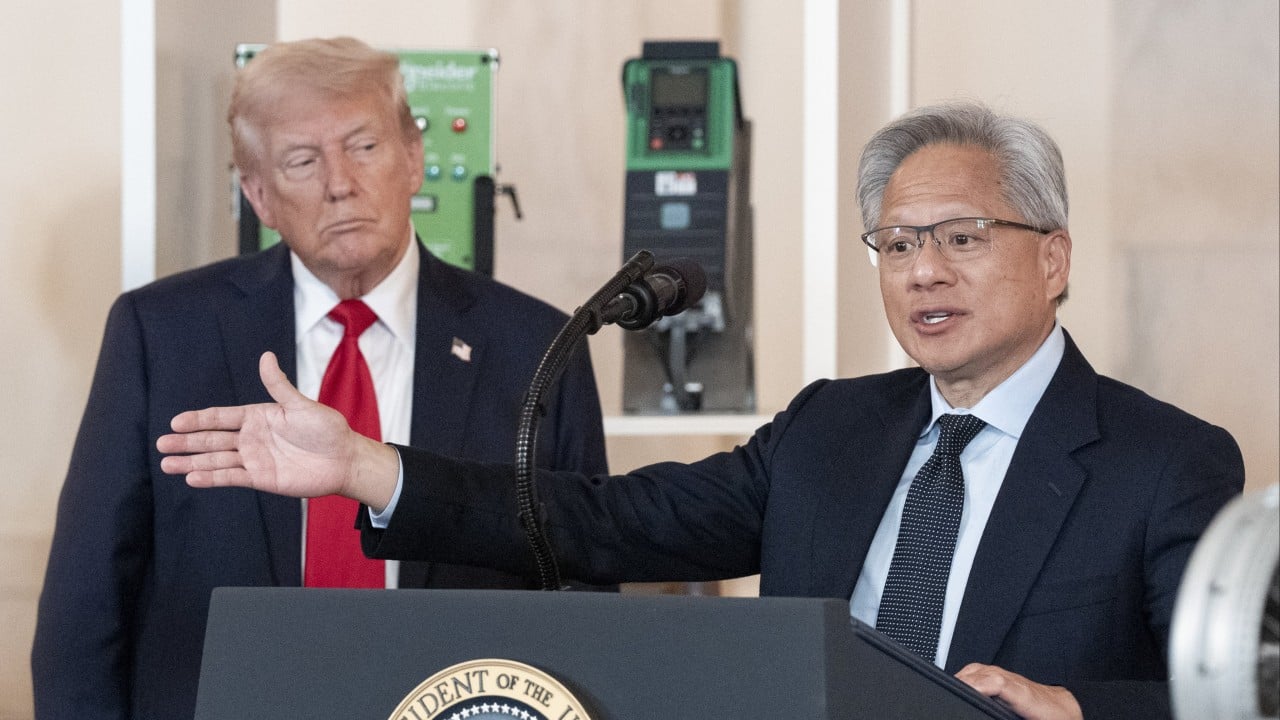Any lingering doubts about the extent to which US President Donald Trump has rewritten the rules of global trade should have been laid to rest with reports that chip giants Nvidia and AMD have agreed to pay the US government 15 per cent of the revenue from chip sales in China.
Advertisement
The payments are a quid pro quo for approval of the export licences needed to sell semiconductors critical to China’s artificial intelligence (AI) ambitions. The previously stalled licences were approved by the Commerce Department on August 8.
As the US-China geostrategic rivalry has intensified in recent years, both Democratic and Republican administrations in Washington have tightened restrictions on the sale of sophisticated technologies to China.
The export controls on Nvidia’s H20 and AMD’s MI308 chips were put in place earlier this year in response to US concerns that the chips would find their way into Chinese military applications and give Beijing a leg up in the race for AI superiority.
This unprecedented arrangement with Nvidia and AMD does something which until now would have been considered incomprehensible. It monetises US trade policy. Companies are essentially paying the US government for approval to export their products.
Advertisement
With this previously unbreachable Rubicon now successfully crossed, a “pay-to-play” ethos seems to be emerging in Trump’s approach to trade policy. US Treasury Secretary Scott Bessent has made this plain, referencing the arrangement with Nvidia and AMD as a potential model moving forward.

